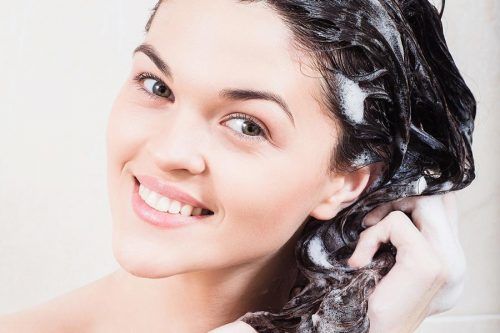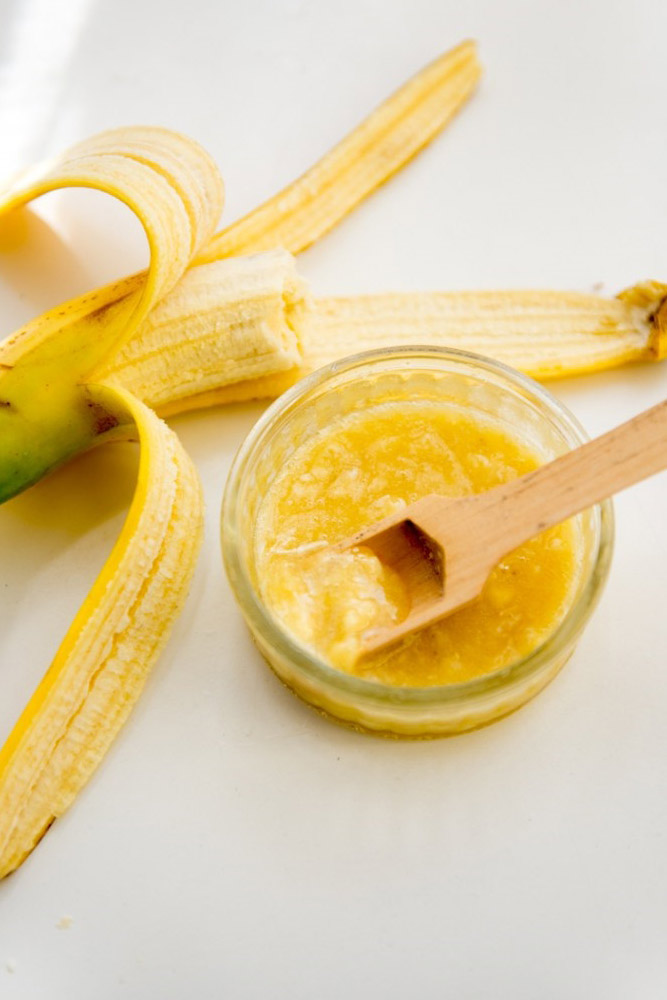Table Of Content

From prescriptions to over-the-counter (OTC) treatments, we dove into the options, so you can select the best product for your needs. Still, discuss with a healthcare provider whether adding collagen to your daily routine is right for you. At-home tools are available for purchase, though using an in-office device or a light therapy session performed by a healthcare provider may lead to better results. Phytochemicals (natural compounds produced by plants) found in several different herbs are a promising option for hair growth. Look for one with nutrients that are hydrating without leaving a greasy or oily residue. Follow the directions on the product, such as applying it at night to allow the ingredients to work while you sleep.
Ingredients to look for in hair growth products
As for what that plan might look like, we asked dermatologists to break down the best hair loss treatments for women, depending on the root of the issue. By definition, a conditioner is meant for the lengths of your hair and not your scalp; in other words, it’s not going to do much in the way of growth. But what the right conditioner can do is help strengthen hair and make it look fuller, giving you instant gratification that other products can’t.
Laser therapy
It removes split ends, preventing them from spreading farther up your strands and causing hair breakage. Other common conditions that can cause hair loss and thinning hair include scalp infections and inflammation, psoriasis, and even fungal infections. This daily serum helps to make strands healthier and stronger—and is under ten dollars. Peptides and zinc fortify roots while vitamin B3 and glycerin hydrate and balance the scalp, making it the ideal environment for growth.
Try caffeine-infused products
Everyone loses their hair from time to time—in fact, according to the American Academy of Dermatology (AAD), it’s completely normal to lose an average of 50 to 100 hairs every day. But if you’re noticing an excessive amount of hair thinning, a receding hairline, or bald spots, you may be suffering from hair loss. Luckily, though, the best hair growth treatments can help slow the process down—and help you grow stronger, thicker hair. These treatments that emit red- or near-infrared light are believed to stimulate hair follicles to help hair grow, with a lower risk of side effects compared to topical creams and oral medications. Corticosteroids, such as hydrocortisone and prednisone, are commonly prescribed (topically, orally, or through injections) to both alleviate inflammation and curb the autoimmune response.
How do I know if I have hair loss?
The ingredients target protection as well as stimulation of new growth. Happy Head offers a variety of prescription tablets and topical solutions along with OTC supplements, shampoos, and conditioners. One of the most notable differences with Happy Head’s prescription treatments is that their topical solutions are customizable. Oral medications like Propecia (finasteride), typically prescribed for male hair loss, can work by blocking hormones linked to hair loss. Aldactone (spironolactone) is generally prescribed for female hair loss and can help regulate hormones responsible for hair thinning. The average scalp contains around 100,000 hair follicles—and it's normal to lose about 100 hairs every day.
When to see a doctor about hair growth
How long the anagen phase lasts depends on how long your hair is and if the cells in your follicle base are continuing to multiply and become hair cells. While research supporting the benefits of acupuncture remains limited, acupuncture is considered a fairly safe treatment when performed by a trained and licensed acupuncturist. Your doctor can order blood tests to check your iron and zinc levels and recommend the right dose of supplement for your deficiency level. You also have the option of topical corticosteroids, but they aren’t necessarily as effective.
BosleyMD BosRevive Volumizing Conditioner
If you’d like to try this medication for hair loss, a doctor or pharmacist can offer more guidance on whether it could work for you. It’s always a good idea to talk to your doctor about hair loss, since they can help identify any medical conditions contributing to hair loss and recommend the right treatment. You can often resolve nutrient deficiencies with dietary changes or supplements, though it never hurts to get guidance from a doctor or registered dietitian first. A trained healthcare professional can help identify and treat nutrient deficiencies caused by an underlying medical condition.
This drug may have advantages in creating less mess and fewer side effects than topical minoxidil. Adding a mask to your arsenal is a surefire way to arm your hair with the nutrients needed to remain strong and healthy. There are a lot of options out there, but we’ve narrowed them down to the top 11 with help from experts and sorting through hundreds of customer evaluations.
Ceremonia Aceite de Moska Pre-Shampoo Scalp & Hair Oil
To give yourself a hot oil treatment, massage the oil into your scalp and then apply it all the way to the ends of your strands. Pile your hair on top of your head, cover it with a shower cap, and blast your strands with a blow-dryer for 15 minutes. Feel free to jump in the shower and shampoo and condition as usual. Topical minoxidil can also help stimulate hair regrowth and promote healthier follicles, Dr. Mitchell adds. Before trying it, though, she recommends enlisting the help of a dermatologist, who can determine which concentration and dosage is right for you.
Finding the reason for your hair loss is key to getting the right treatment and improving the problem. When hair loss results from an underlying health issue, drug, or nonmedical factor, fixing the cause can help restore normal growth. Apply fresh lemon juice to your scalp and hair 15 minutes before you shampoo.

For people who are capable of becoming pregnant, it's often prescribed with a birth control pill because it can cause fetal development anomalies. The suggested dose of finasteride for hair loss is 1 milligram daily. Finasteride is often combined with minoxidil or surgical hair restoration to achieve optimal outcomes. This medication stops your body from making the hormone at the root of male pattern baldness, DHT (dihydrotestosterone). Apply the juice to your scalp and hair, and leave it in for at least 15 minutes.
Rice water for hair growth: Experts weigh in on the benefits - TODAY
Rice water for hair growth: Experts weigh in on the benefits.
Posted: Fri, 08 Mar 2024 08:00:00 GMT [source]
Taking too high of a dose can lead to side effects, so it’s always best to check with a healthcare professional before adding any new supplements to your diet. Deficiencies in iron and zinc may contribute to hair loss, but getting enough of these vitamins may help prevent future hair loss and promote new growth. You can also ask your doctor about oral minoxidil as a treatment for androgenetic alopecia. You’ll also find a variety of methods for addressing temporary, reversible, and permanent hair loss, so you can explore your options and find a treatment that works for you. Natasha explained that at 22, she'd been facing severe hair loss as a side effect of her steroid medications to treat her health problems. To make PRP, your doctor takes some of your blood, spins it to separate the platelets from the other cells, and then puts the platelets back into the liquid part of your blood (the plasma).
“Look for tea tree oil as a natural way to remedy scalp buildup,” she adds. When they get clogged, the build-up can cause all sorts of problems like itching, flaking, and inflammation. If the inflammation is deep in the scalp, it can also cause hair loss,” says Gary Goldenberg, M.D., assistant clinical professor of dermatology at the Icahn School of Medicine at Mount Sinai Hospital.
Thicker, coarser hair types can get away without washing their hair for a few days, while thinner hair types may find their hair feels greasy even after one day. In such cases, dry shampoo can work wonders in soaking up excess grease as you await longer strands. Sure, you can easily pop a hair growth supplement, but honestly, the word’s still out on whether or not they’re an effective way to help your hair grow faster. Plus, they can contain unnecessarily large amounts of minerals and vitamins (ahem, biotin), which can actually wreak havoc in other ways (ahem, breakouts). For this reason, eating your way to longer hair is actually a smarter, nutritionist-approved way to make your hair grow faster. Vitamins and minerals occurring naturally in foods are easier for your body to utilize, and they’ll naturally deliver a healthier ratio of nutrients—just the way Mother Nature intended.
Trichologist Bridgette Hill likes this hair growth oil because it contains rosemary oil, which can help stimulate hair follicle growth with daily application. She adds that it also improves blood circulation to the scalp, destroys bacteria that clog hair follicles, and has fewer side effects than minoxidil. Plus, there are other ingredients here that are good for your hair and scalp, including moisturizing olive oil, horsetail extract, and biotin, among others.
A dermatologist is a medical doctor who specializes in treating the skin, hair, and nails. Dozens of over-the-counter supplements and products purport to reverse hair loss, making it tough for patients to know which ones work and which don’t. The most common cause of alopecia is an inherited condition called male- or female-pattern hair loss. It’s usually genetic, but it can also be triggered by diseases or disorders that attack the hair follicles. A silk or satin hair cover or pillowcase is better for the health of your hair than cotton, which will absorb all the moisture from your strands and lead to tangles and breakage. While this won’t necessarily speed up the hair growth process, sleeping on a silk pillowcase generates less friction and gives hair a softer surface to rest on.

No comments:
Post a Comment